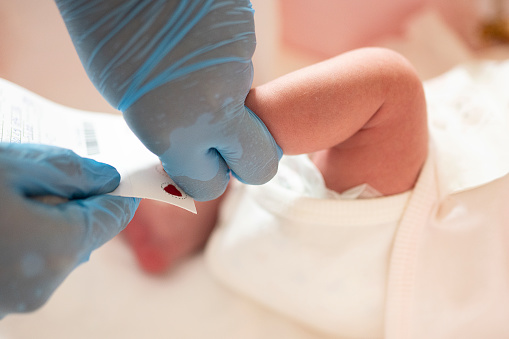What to Expect During Newborn Screening

What to Expect During Newborn Screening
September is Newborn Screening Awareness Month, a time to raise awareness among parents-to-be about what to expect during the screening. If you’re unfamiliar with newborn screening, it’s a public health service provided in all 50 U.S. states. It helps to identify conditions not apparent at birth that may cause severe disability or death if not treated quickly. Testing is up to each state, but they typically order a heart screening, hearing screening, and blood test before the newborn leaves the hospital. Abnormal results lead to further testing. Below, Pegalis Law Group, LLC explains what to expect during screening.
When Does Newborn Screening Occur? How Is It Done?
Most newborns are screened within 1-2 days after delivery, with some states requiring further testing within 1-2 weeks. Babies born prematurely or with a low birth weight may not be tested within the first 48 hours. A physician, nurse, medical technologist, or qualified midwife may do the testing. Results are sent to the hospital where your baby was born and your listed primary healthcare provider. If your baby isn’t born in a hospital, talk to your provider to make newborn screening arrangements as soon as possible after the delivery.
Newborn screening usually involves a “heel stick” blood test. Blood droplets are collected on special paper and sent to a lab for analysis. During a hearing screening, microscopic earphones are placed in your baby’s ears to check how they respond to sounds. A heart screening involves placing sensors on your baby’s skin to monitor their heartbeat and the amount of oxygen in their blood.
What Conditions Are Screened?
Every state has its own required list of newborn screening conditions. Common health conditions screened for include endocrine, hemoglobin, and metabolism disorders, as well as cystic fibrosis, critical congenital heart disease, and hearing loss. Many of these health conditions are genetically inherited. When detected early, many of them are also treatable with a better prognosis.
Why Is Screening Important?
Nearly four billion babies are screened annually to give them a healthy head start for life. Delaying diagnosis and treatment for the conditions being screened can create more severe health issues for your child in the long term. While newborn screening fees may vary by state, all newborns are screened at the hospital where they’re born regardless of their health insurance status.
What Happens if the Newborn Screening Results Are Abnormal?
It can take up to three weeks to receive newborn screening results. Abnormal or out-of-range test results are usually sent for further diagnosis to ensure accuracy. A positive screening result doesn’t necessarily mean your baby has the condition being tested. Follow-up with your primary healthcare provider is essential.
Focused on Raising Patient Awareness Issues for 50+ Years
As a New York-based personal injury and medical malpractice law firm for 50+ years, Pegalis Law Group, LLC cares about creating proactive patients. Please visit our website and follow us on YouTube, Twitter, Facebook, and LinkedIn for more tips to keep you and your loved ones happy and healthy this year.
